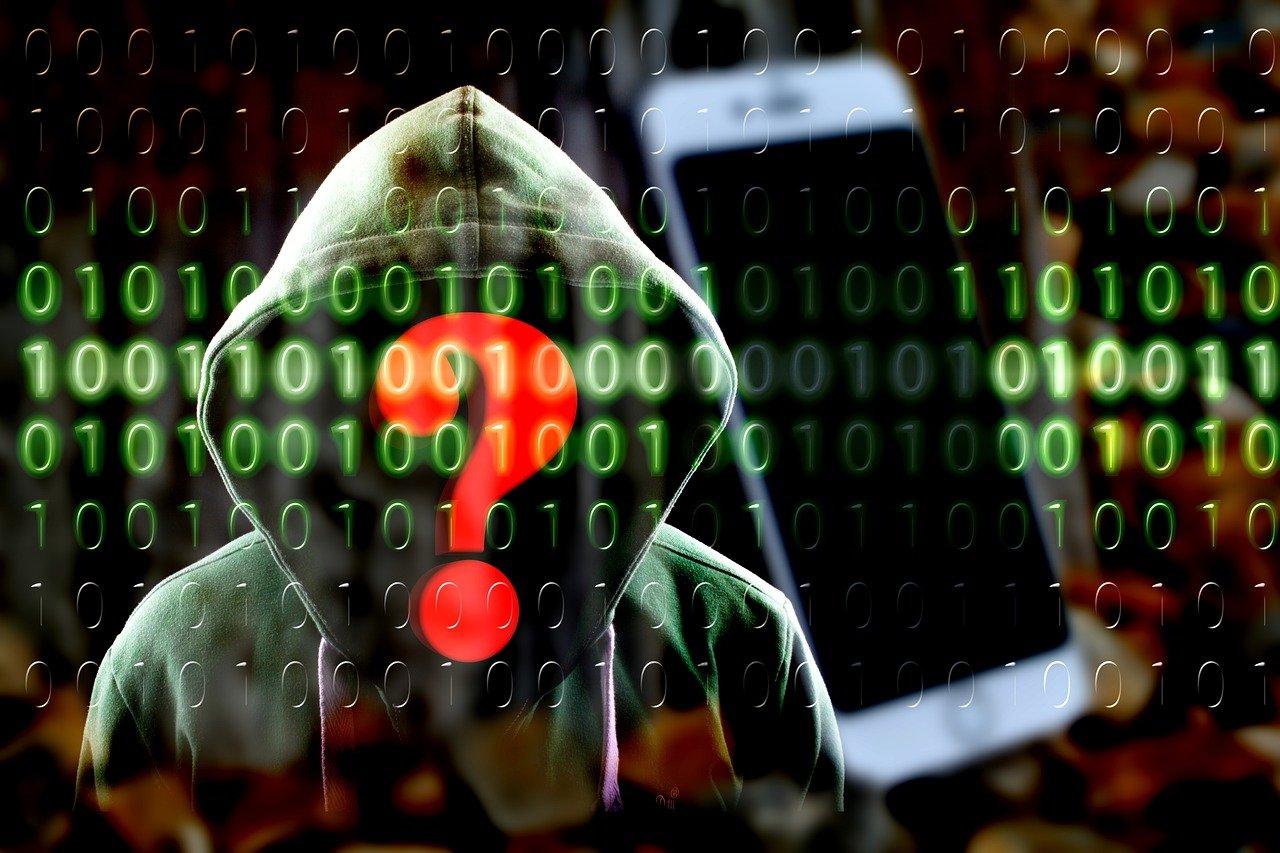
Image credit: Pixabay
When was the last time you ran a virus scan on your PC? Can't quite recall, can you? The average person has grown indifferent to the looming threat of computer viruses, treating them as a distant memory or a past problem.
But here's a startling fact to shake you out of your complacency: recent studies have shown that over 450,000 new malware samples are detected daily. That's right, while you were browsing social media or binge-watching your favorite show, cybercriminals were busy crafting new digital weapons, ready to infiltrate your precious digital fortress.
In this article, I will prove that even in a world of trending hashtags and viral cat videos, computer viruses are no laughing matter. But first things first, do people still get viruses on their PC? Let's find out!
Do People Still Get Viruses on Their PC?
Computer viruses have come a long way since the early days of digital mischief. From the pioneering Creeper system in 1971 to the infamous iLoveyou virus in 2000, the landscape is continuously evolving and is riddled with notable milestones.
● Milestone 1 (1973-1987): Development of the First Antivirus Programs: Shortly after the discovery of the Creeper system, a significant milestone was achieved with the development of the first antivirus program, Reaper. This program marked the beginning of a proactive approach to combating computer viruses. Reaper introduced the concept of scanning files and systems for malicious code, enabling users to detect and remove viruses from their machines.
● Milestone 2 (2000 - Today): Heightened Awareness and Security Measures: Following the havoc caused by the iLoveyou virus, a milestone was reached regarding heightened awareness and implementation of security measures. The widespread impact of the iLoveyou virus served as a wake-up call, revealing the vulnerabilities in email communication and the need for improved cybersecurity practices. Organizations and individuals started implementing stricter email filtering systems, educating users about the dangers of opening suspicious attachments, and adopting safer browsing habits.
Even today, the threat of viruses is real, with hackers adapting and creating new strains to exploit vulnerabilities. Therefore, individuals must maintain strong antivirus protection and exercise caution while navigating the digital realm.
Types of Modern Computer Viruses and Their Evolving Nature

Image credit: Pixabay
Computer viruses have come a long way since their humble beginnings. Here are a few notable examples of their modern counterparts:
● Ransomware: These digital extortionists hold your files hostage, demanding a ransom for their release. It's like a virtual kidnapping but with your data as the victim.
● Spyware: Imagine a team of digital spies infiltrating your computer, silently collecting personal information without your knowledge. They are essentially unwanted guests snooping around in your virtual space.
● Worms: These speedy digital creatures spread from one computer to another through network connections, infecting everything in their path.
Common Infection Vectors
Computer viruses employ cunning strategies to infiltrate our systems. Some of the common ways they tend to slip through the cracks are:
● Phishing Emails: Cyber-criminals pose as legitimate entities, tricking users into clicking on malicious links. It's like a digital game of deception!
● Infected Websites: Dark corners of the internet harbour compromised websites that can expose your computer to viruses, turning it into a virtual breeding ground for digital troublemakers.
● Malicious Downloads: That "free" software you downloaded in a moment of internet-induced excitement? There is a good chance it came with digital companions.
Why Have Computer Viruses Fallen Out of the Public Consciousness?
Gone are the days when computer viruses were the talk of the town. They appear to have pulled a vanishing act worth of Houdini himself, almost completely slipping away into obscurity. Let's unravel this enigma and shed some light on the matter.
● Natural Elimination: Remember the old days of sharing floppy disks and USB sticks? Well, those times have gone the way of the dodo. With the rise of cloud storage, file-sharing services, and email attachments, the physical carriers of viruses have become ancient relics.
● Tech-Savvy Users: Gone are the days of clueless clickers and gullible downloaders. Today, the average internet user has become more tech-savvy and cautious, with knowledge about phishing scams, suspicious email attachments, and the perils of clicking on dubious links.
● Safer Browsers: Thanks to the wonders of technology, we now have browsers such as Microsoft Edge, Google Chrome, and Firefox with built-in security features. These virtual gatekeepers protect us from malicious websites, making it harder for viruses to sneak into our digital playground.
In addition to the three factors mentioned, further evidence supports the notion that computer viruses have fallen out of the public consciousness. According to Google's Transparency Report, over 3.5 million browser warnings were displayed to users attempting to access websites deemed dangerous by Google's Safe Browsing feature as of December 25, 2022.
This statistic reveals a declining trend in users visiting websites flagged as unsafe by Google. The decrease in displayed warnings suggests that users are becoming more tech-savvy and cautious about online activities.
Are Computer Viruses a Legitimate Concern for Businesses?
In the digital age, where data is the new gold, cybersecurity is the shining armor that protects businesses from these electronic marauders. When computer viruses crash the business party, they bring a whirlwind of trouble, wreaking havoc on corporate profits and efficiency. This can be in the form of:
● Financial Losses Due to Downtime and System Repairs: Imagine a business that grinds to a halt, forcing employees to scramble to fix the infected systems. The cost of downtime and repairing the damage can hit the bottom line hard, like a punch from an angry accountant.
● Potential Loss of Customer Trust and Reputation Damage: Trust, my friend, is the currency of the business world. A virus attack compromising customer data or disrupting services can shatter that trust, sending your customer relationship up in flames with no easy way to out the fire.
● Industrial Espionage and Intellectual Property Theft: Like a cunning spy, a virus can infiltrate a business's digital fortress, stealing valuable trade secrets and intellectual property.
● Attacks Aimed at Disrupting Critical Infrastructure: Some viruses have a bone to pick with a business's critical infrastructure, aiming to cause chaos and disruption.
Why the Average Person Must Worry About Computer Viruses
The average person, going about their daily lives, may be unaware of the invisible dangers lurking in cyberspace. But, before you dismiss computer viruses as fairy tales told by paranoid techies, consider this:
● Identity Theft and Financial Fraud Risks: Computer viruses can steal sensitive data, such as bank account details, social security numbers, or credit card information. With this arsenal, hackers can wreak havoc on your finances and even assume your identity, leaving you to deal with the aftermath.
● Unauthorized Access to Personal Files and Private Information: Imagine someone snooping around on your photos, confidential documents, or private conversations. Computer viruses can grant unauthorized access to your files, invading your privacy and potentially exposing your personal life to prying eyes.
● Privacy Invasion Through Webcam and Microphone Access: Ah, the joy of living in the digital age, where hackers can peek through your webcam and listen to your conversations. Imagine an unwanted guest hiding in the corner of your room, watching your every move. Creepy, right?
● Increased Vulnerability to Other Cyber Threats: When a virus infiltrates your device, it's like opening a door for other digital miscreants. Suddenly, you become an easy target for malware, phishing attacks, and digital trickery.
Best Practices for Virus Protection

Image credit: Pixabay
Today we must prioritize arming ourselves with the best defenses in this digital jungle filled with these cunning predators. Here are a few best practices to protect yourself against computer viruses.
● Regularly Updating Antivirus Software and Virus Definitions: Regularly updating your antivirus software and virus definitions is like giving your digital guardian a power-up, ensuring it can recognize and combat the latest threats.
● Avoiding Suspicious Websites and Downloads: The internet is a vast jungle, and not all websites are friendly watering holes. Stick to reputable websites and steer clear of those shady corners where viruses tend to hide.
● Regular Data Backups as a Precautionary Measure: There is sweet relief in knowing that your precious data is safe and sound, even in a digital disaster. Regularly backing up your data is like creating a safety net, ready to catch you if you fall.
Conclusion
While computer viruses may have slipped out of the public consciousness, their relevance and potential harm remain as potent as ever. The evolving landscape of technology demands that we stay vigilant and proactive in protecting ourselves from these digital adversaries.
Whether you're a business owner safeguarding sensitive data, or an average person navigating the online world, you can not underestimate the threat of computer viruses. We can fortify our defenses and mitigate the risks by staying informed, practicing good cybersecurity habits, and utilizing reliable antivirus software. Stay safe, stay protected, and keep the viruses at bay!